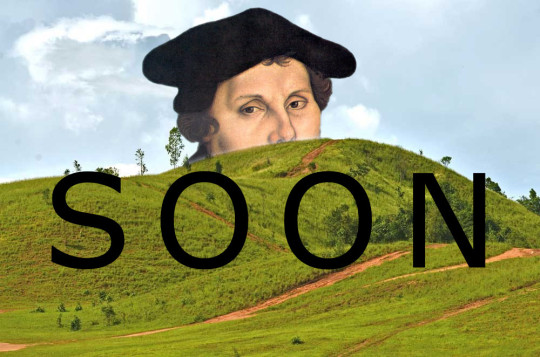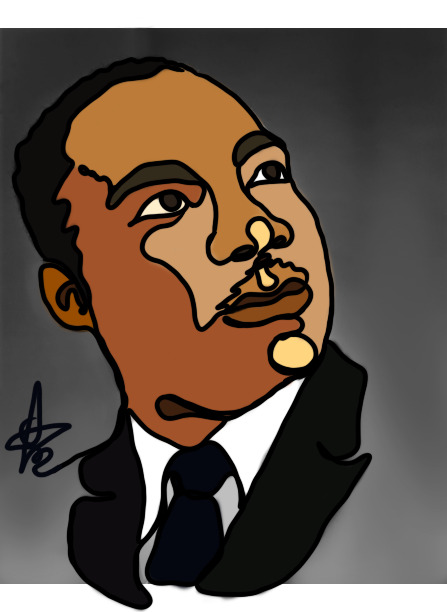#The Luther Bible
Explore tagged Tumblr posts
Photo

Ich habe gesagt: "HERR, das soll mein Erbe sein, daß ich deine Worte halte."
(Thou art my portion, O Lord; I have said that I would keep Thy words.) — Psalm 119:57 | Luther Bibel 1545 (LUTH1545) The Luther Bible 1545 is in the public domain. Cross References: Deuteronomy 33:9; Psalm 16:5; Jeremiah 10:16; lamentations 3:24
4 notes
·
View notes
Text

The Creation, from Biblia; das ist, die ganze Heilige Schrifft deutsch. Wittemberg: Hans Lufft, 1534.
GC5.L9774B.1534
Houghton Library, Harvard University
854 notes
·
View notes
Text
protestants the entire month of october:

#life's like this#protestant#martin luther#reformation#lowkey looking forward to my church's reformation celebration this year#can i get a heck yeah for corporate singing being able to take communion and bibles in the common tongue#@my catholic moots sorry but you'll have to endure this for the next few weeks
250 notes
·
View notes
Text

American Decay 🌻⛓️🥩
bonus Chop-Top under cut

#yes this is about how TCM is an anti-war piece#quotes are taken from the Bible and also Martin Luther King Jr#the texas chainsaw massacre#TCM#bubba sawyer#chop top sawyer#horror#classic horror#fanart#the texas chainsaw massacre 1974#art#artists on tumblr#my art#drawing#artists on instagram#sketch#illustrators on tumblr#digital art#sketchbook#anti war#Leatherface
290 notes
·
View notes
Text
Writers with a more historic Protestant perspective have generally translated the Greek word charis as "grace" and understood it to refer to the idea that there is a lack of human effort in salvation because God is the controlling factor. Proponents of the New Perspective argue that "favor" is a better translation, as the word refers normally to "doing a favor". In ancient societies there was the expectation that such favors be repaid, and this semi-formal system of favors acted like loans. Gift giving corresponded with the expectation of reciprocity. Therefore, it is argued that when Paul speaks of how God did us a "favor" by sending Jesus, he is saying that God took the initiative, but is not implying a lack of human effort in salvation, and is in fact implying that Christians have an obligation to repay the favor God has done for them. [...] "charis" as "favor" [does] not teach that Christians earn their way to heaven outside of the death of Christ. Forgiveness of sins through the blood of Christ is still necessary to salvation. But, that forgiveness demands effort on the part of the individual (cf. Paul in Phil. 3:12–16).
#christianity#bible#jesus#something to meditate on#faith in jesus#bible scripture#keep the faith#faith#jesus christ#christian#catholicism#protestantism#catholic#catholic church#reformed#presbyterian#lutheran#messiah#martin luther
21 notes
·
View notes
Text
*A pastor who fails to deal with sin is like a doctor who fails to deal with illness. You better find another one."

Martin Luther OSA was a German priest, theologian, author, hymnwriter, professor, and Augustinian friar. Luther was the seminal figure of the Protestant Reformation, and his theological beliefs form the basis of Lutheranism. He is widely regarded as one of the most influential figures in Western and Christian history.
Nailed the 95 Theses: Martin Luther is best known for his 95 Theses, which he is said to have nailed to the door of the Castle Church in Wittenberg on October 31, 1517. This act is commonly considered the starting point of the Protestant Reformation, challenging the Catholic Church's practices, particularly the sale of indulgences.
Excommunicated and Outlawed: In 1521, Luther was excommunicated by Pope Leo X and declared an outlaw by the Holy Roman Emperor Charles V at the Diet of Worms. Despite this, he continued to promote his reforms and translated the Bible into German, making it more accessible to the common people.
Translation of the Bible: Luther translated the Bible into German, starting with the New Testament in 1522 and completing the Old Testament in 1534. His translation played a significant role in shaping the German language and making the Scriptures accessible to a broader audience.
Theological Contributions: Luther's theology emphasized key doctrines such as justification by faith alone (sola fide), the authority of Scripture alone (sola scriptura), and the priesthood of all believers. These ideas were foundational to the development of Protestantism.
Lutheranism: Martin Luther’s teachings and reforms led to the establishment of the Lutheran Church, one of the major branches of Protestantism. His followers, known as Lutherans, continued to develop his theological insights and build upon his reforming work, influencing the course of Christian history.
#Protestant Reformation#95 Theses#Wittenberg#Martin Luther#Excommunication#Diet of Worms#Reformer#Justification by Faith#Sola Fide#Sola Scriptura#Lutheranism#Bible Translation#German Reformation#Indulgences#Theology#Protestantism#Church History#Christian Doctrine#Religious Reform#Reformist Leader#today on tumblr#quoteoftheday
17 notes
·
View notes
Text

Ancient Hebrews
#Ancient hebrews#divide and conquer#hebrews#melanin#black family#Bible Prayers#Jesus Christ Our Savior#Faith#Rev dr martin luther the king#Negro Spirituals#Igbo
4 notes
·
View notes
Text
“Thomas Aquinas had delivered the medieval judgment on the Bible in his emphatic sentence: "The author of the Bible is God." This notion of inspiration naturally led to the opinion that God had hidden in the sacred text all sorts of esoteric truths about various subjects. In a paradoxical way, the belief that God had dictated the various books of the Bible to inspired writers contributed to the medieval habit of not reading the Bible as a book-or as the collection of books that it is. It became rather a treasury of proof texts to be used as needed for the support of this or that doctrine propounded by theologians and preachers. God was everywhere equally in it. With the allegorical interpretation, anything could be found in all of it.” ― Richard Marius, Martin Luther: The Christian between God and Death
#bible#quotes#biblical studies#interpreation#biblical hermeneutics#bible interpretation#luther#martin luther#lutheranism#scripture#faith#God#religion#spirituality#God's word
10 notes
·
View notes
Text

This is a song for your pregnant kitty, she's looking nauseous and a week past due. But if I sing for your pregnant kitty, she will feel better in a day or two.
#bible#cat#christian#church#faith#god#jesus#larrythecucumber#luther#martinluther#pregnantbelly#reformed#vegetarian#veggie#veggietales#vet#yordle#veggielife#christianmemes#jesusmemes#christianmeme#veggiefood#veggietalesmemes#catholicmemes#veggieworld#veggielover#reformedmemes#memesforjesus#pregnatkitty#art
2 notes
·
View notes
Text
youtube
#christian#christianity#christianblr#gospel#my post#protestant#martin luther#lutheran#lcms#bryan wolfmueller#youtube#christian resource#christian resources#bible#genesis#christian commentary#Youtube#christblr
3 notes
·
View notes
Text

"We shall overcome because the arc of the moral universe is long, but it bends toward justice."

Happy Martin Luther King jr day everybody!!! RIP Martin. We miss you. Your dreams were that, there would be a future where we can share ours with each other. And we have, one step at a time. Thank you.
#mlk day#martin luther king jr#i have a dream#social justice#justice for all#world peace#blm#black lives matter#black power#equality#freedom#jesus christ#gods will#christian blog#holy bible#artists on tumblr#black art#one line drawing#human rights#my art#illustration#tumblr tips#black history month#art#black tumblr
7 notes
·
View notes
Quote
The Bible is alive; it speaks to me. It has feet; it runs after me. It has hands; it lays hold of me!
Martin Luther
49 notes
·
View notes
Text
guys, uh, i think i might like being lutheran
#im getting more involved in my lutheran church (lay reader and centering prayer group leader) and im reading Pastrix by Nadia Bolz-Weber rn#look luther was a crusty man with horrific taste in islamophobic nonsense to put in the introduction of the Quran translated into Latin#among other things#but maybe it IS all about grace & maybe the bible IS the messy swaddling cloths where we find jesus & maybe we're ALL simultaneously#sinners and saints#and maybe i'm not the world's most reluctant lutheran anymore 😳😳
7 notes
·
View notes
Text

#martin luther king jr#martin luther king quotes#martin luther king day#theology#faith#sin#the bible#apologetics#conservatives#us politics#american politics#democrats#gop#conservatism#rip twitter#tweet#twitter post#twitter#twitter x#reddit#elon musk
6 notes
·
View notes
Text
On living life to the fullest:









“Chasing the Sun,” Sara Bareilles / “Heavydirtysoul,” twenty one pilots / Ecclesiastes 5:18 / “Man with ‘Only God Can Judge Me’ Tattoo Suddenly Realizes God Can Judge Him,” The Babylon Bee / Martin Luther’s morning prayer / “The World Was Wide Enough,” Hamilton / Hobby Lobby sign reading “Always remember to fall asleep with a dream and wake up with a purpose” / “The Mad Ones,” Krystina Alabado and Emma Hunton / “Your Life in Weeks,” Tim Urban
#web weaving#ellie's text-to-text#sara bareilles#chasing the sun#twenty one pilots#heavydirtysoul#bible verse#ecclesiastes 5:18#christianity#christian faith#babylon bee#martin luther#lutheranism#the world was wide enough#hamilton#hamilton musical#krystina alabado#emma hunton#the mad ones#tim urban#wait but why
19 notes
·
View notes
Text
Indulge Me
This poem is inspired by Martin Luther's description of a Pardoner as "the donkey from Rome". For many years the Vatican sanctioned the selling of "religious relics". People bought them believing that a nail from the true cross, a feather from Noah's dove or a saint's comb would reduce the time that they spent in Purgatory.
When the trumpet sounds and the Lord calls me home,
I'll have my indulgence from the donkey from Rome.
When we meet in the air, and His praises sing,
I'll be very thankful for the coffer-coin ring.
As I walk through the gates to the great Bema court,
I'll show to the Lord all the relics I bought.
He'll be so pleased to see me, He'll know my true worth,
And be glad He released me from under the Earth.
I'll remember the battles, the struggles with sin,
And say with great pride,
"I bought my way in."
#protestant reformation#roman catholicism#martin luther#poetry#indulgences#purgatory#vatican#rapture#heaven#scripture#bible truths
2 notes
·
View notes